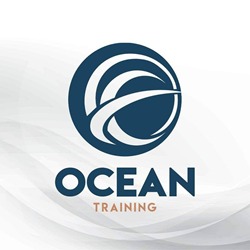
Labor market skills 2024
- Posted by Ocean Training
- Categories Administrative and institutional development
- Date December 29, 2023
- Comments 0 comment
Skills needed for data science and analytics
Data science and analysis require a combination of technical skills and agility. At our Ocean Training and Development Center, we help showcase some of the key skills needed for a career in data science and analysis:
- Statistical Analysis: The ability to apply statistical methods to analyze data, identify trends, and make predictions.
Data Collection: The ability to clean, transform, and manipulate data to make it suitable for analysis.
- Programming: Strong programming skills in languages such as Python, R, SQL, or SAS are required to work with data and build models.
- Machine Learning: Understanding machine learning algorithms and techniques to develop predictive models.
- Data Visualization: Ability to create effective data visualizations using tools such as Tableau, PowerBI, or Matplotlib.
- Business Acumen: Understanding business processes, industry trends, and customer needs is essential to developing insights that can drive business decisions.
- Communication: Ability to communicate complex ideas to non-technical stakeholders in a clear and concise manner.
- Critical Thinking: The ability to analyze problems and develop creative solutions based on data-driven insights.
- Attention to detail: Data scientists need to pay attention to the details of their data, ensuring the accuracy and completeness of the data.
- Continuous learning: The field of data science is constantly evolving, so data scientists must be willing to learn and adapt to new techniques and techniques.
Skills required for cyber security science
Security science, also known as cyber security, requires a combination of technical skills and agility. Here are some of the key skills needed for a career in security science:
- Knowledge of security principles and best practices: Understanding security principles and best practices is essential for developing effective security solutions.
- Cybersecurity Frameworks: Familiarity with cybersecurity frameworks such as NIST, ISO 27001, and CIS controls are essential for developing security policies and procedures.
- Information Security Technologies: Understanding technologies such as firewalls, intrusion detection/prevention systems, and encryption is essential to designing, implementing, and managing security solutions.
- Incident Response: Understanding incident response procedures is essential to respond to security incidents quickly and effectively.
- Risk Assessment: The ability to assess security risks and identify vulnerabilities is essential to designing effective security solutions.
- Problem Solving: The ability to analyze security problems and develop creative solutions is essential to protecting against ever-evolving threats.
- Ethical Hacking: Understanding hacking techniques and tools is essential to test the effectiveness of security solutions and identify vulnerabilities in systems.
Skills necessary to specialize in environmental sciences
Environmental science is an interdisciplinary field that involves the study of the natural environment and the effects of human activities on it. Here are some key skills needed for a career in environmental science:
- Scientific knowledge: An understanding of environmental science and related disciplines such as biology, chemistry, and physics is essential for developing solutions to environmental problems.
- Fieldwork and Data Collection: Ability to conduct fieldwork and collect environmental data using various tools such as air and water quality monitors, soil sampling, and GPS systems.
- Data Analysis: The ability to analyze and interpret environmental data using statistical software, such as R or Python, and other data analysis tools.
- Environmental Policy and Regulation: Understanding environmental policies and regulations at the local, state, and federal levels is essential to developing effective environmental solutions.
- GIS and Remote Sensing: Familiarity with GIS, remote sensing software, and techniques for analyzing and visualizing spatial data.
- Collaboration and teamwork: Environmental science often involves collaboration with other scientists, policy makers and stakeholders, so the ability to work effectively in teams is essential.
- Passion for the environment: A true passion for the environment and a commitment to sustainability are important for success in the field of environmental science.
()

